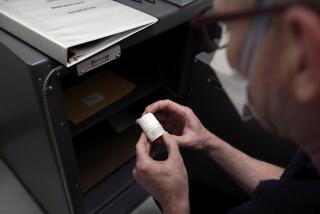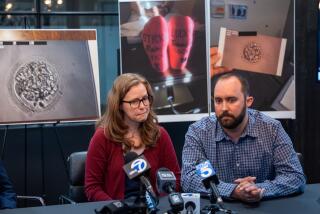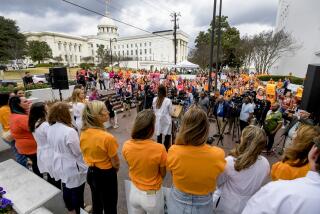Policy uncertainty hampers stem cell research, study says
When U.S. District Judge Royce C. Lamberth issued an injunction last August cutting off federal funding for research with human embryonic stem cells, he wrote that he did so because plaintiffs in an unresolved lawsuit who studied adult stem cells would “suffer irreparable injury in the absence of the injunction,” while human embryonic stem cell researchers’ work would remain unaffected.
A November 2010 survey of 370 scientists conducted by Aaron D. Levine of the School of Public Policy and Institute of Bioengineering and Bioscience at Georgia Tech suggests that the judge got the consequences all wrong.
The results were published Thursday in the journal Cell Stem Cell.
The temporary funding ban disrupted the scientists’ work directly, researchers who responded to the survey reported. What’s more, ongoing uncertainty about funding for human embryonic stem cell research negatively affected scientists working with non-human and non-embryonic stem cell types as well as the controversial cell lines at the center of the controversy.
Of the researchers Levine surveyed, 50 said they were delaying plans to start hESC research. Thirty-four said they were shifting future research plans away from hESC cells. Forty-four said that policy uncertainty was impeding ongoing research. Some said they’d been affected negatively by the increased cost and administrative burden of keeping federally and non-federally funded research separated in their labs. Uncertainty made some researchers put off hiring postdoctoral staff and other lab staff.
“Frequent policy changes have made the years since these cells were first derived something of a roller coaster,” Levine wrote.
In August 2000 the Clinton administration permitted federal funding of research on the cells, but not federal funding for the creation of new cell lines. Just a year later, George W. Bush limited that funding to work on a small number of lines. Congress tried to overturn the restriction twice, but Bush vetoed the bills. States jumped into the mix to provide funding to fill in the gaps, but their efforts were also hampered by challenges in the courts and budget difficulties.
The Obama administration opened up funding again but, to scientists’ chagrin, the original Bush-approved lines, on which many were working, were not included. Some of them were eventually reinstated. Then came the August injunction.
Levine called on Congress to pass laws “to provide a clear legal basis for the federal funding of hESC research,” but acknowledged that was probably unlikely. “hESC scientists should prepare to face continued policy fluctuations, legal challenges, and other hurdles to their research in the future,” he wrote.
RELATED: The Times reports on stem cell scientists grappling with funding uncertainty.
More to Read
Sign up for our L.A. Times Plants newsletter
At the start of each month, get a roundup of upcoming plant-related activities and events in Southern California, along with links to tips and articles you may have missed.
You may occasionally receive promotional content from the Los Angeles Times.







